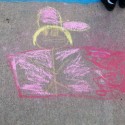A writer’s and a storyteller’s journey will begin with story development through research. Then there is a first product and a joy at completing this piece of coalesced magic. Whether this is an oral performance piece or a book manuscript it is a story in its infancy. There is a moment of short-lived thrill that this story is born. The characters come alive; it breathes. Then the reality sets in, this is a rough, rough draft.
My first go through is to find the obvious errors. In telling the story this can be as simple as a scene out of sequence or a lack of introduction or description. In my writing it will be a collection of typos that the computer generously highlights. Then with a finer perception I look for the here that should be hear, the there that should be their. Those the computer only sees as spelled correctly but I look and say how far ahead was my mind that my fingers typed the wrong words unwittingly. You see I’m often several sentences ahead in plot from where I am in typing. My mind is racing about constructing the roads the story will go down.
Once I have made those corrections I am feeling satisfied. This has taken hours on a full manuscript. I’m not counting as that is too daunting to know in a factual form. Now there is a readable script of story. I savor sections and try new voices for oral performance. I may try walking through passages are the motions and facial expressions on cue? When I’m relatively happy with the work I’ve done to smooth out the bumps in the road I’m ready to share.
This is where the Beta comes in. Some projects have one or two, others have several. I use a story beta that listens to oral performance and story betas to read manuscripts. Right here, right now I need to say thank you for your time and effort!!! Some of their help is the same for either an oral performance or a written piece. They listen and critique with where they were caught missing a thread of story. They comment on the f=voice of certain scenes and the placement. The beach is always referred to in the same place or the person is always the same height when I look to them. This invaluable feedback often comes with some handwritten notes. The written notes are especially important with a long manuscript. The fact that I am always working on multiple projects at once means the notes will bring me back to where I’m working, I can check them off as I go through the story and make changes. Betas are a God send!! Some ask questions which require me to think about my characters in a light I may not have. Did something precipitate that anger? Where is the parent in this scene? Have you considered having the character be less perfect, she might blow up at her frustration.? When I get questions, I take time to read passages and see how that comment was born and how I might rectify it. Of course, I don’t have to follow my Beta’s comments but most of the time I find them right on target.
How do I choose a Beta? First I ask myself; Do I need an expert’s opinion on any portion of this story? For example, in a manuscript I refer to a fish ladder and Salmon restocking. I sent that to a beta who read the fish sections for accuracy of description and detail. His background as the fish expert was invaluable. Not many people know the intricacies of that but if I was wrong misinformation is being spread and you just know some expert will read it and comment. In another place in the manuscript I talk about having wills drawn up by a lawyer. You can be sure I asked a lawyer to read through that section. Business deals, historical facts, weather in a certain place, mechanical or some other specialty. Those are great places to use a field expert as a Beta Reader. Another Beta reader I had for a manuscript should be a writer. Your writer friends and critique group buddies are a good place to start to find someone with time and inclination to Beta read your work. The input of a writer can run the gamut from grammar to structure. They will ask the questions, seek plot holes and comment on where they need more depth to fully understand. Be prepared to offer some special thanks and return the favor one day.
My oral performance stories also use a beta listener. Sometimes they are written and can be read but for me more often the story is a collection of notes that grows and refines with each telling. Here I use Beta Listeners to hone my performance and respond to feedback given. I find them equally important in creating the final product of an oral piece as a written piece. The goal remains the same to convey a story to an appreciative audience and not lose them on the journey.
Here I am today saying a huge THANK YOU!!! To my Betas past and future you help me shine. What would my stories be with out you?

